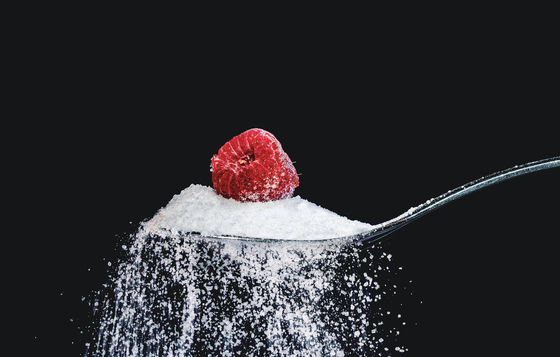It turns out that the zero-calorie artificial sweetener 'erythritol' increases the viscosity of blood and increases the risk of stroke

Erythritol , a zero-calorie artificial sweetener, increases blood viscosity and increases the risk of stroke, according to a new study. Erythritol is a zero-calorie sugar, so it is used as a sugar substitute as an artificial sweetener.
The artificial sweetener erythritol and cardiovascular event risk | Nature Medicine
https://www.nature.com/articles/s41591-023-02223-9
Popular Artificial Sweetener Appears to Make Blood 'Stickier', Linked to Stroke Risk : ScienceAlert
https://www.sciencealert.com/popular-artificial-sweetener-appears-to-make-blood-stickier-linked-to-stroke-risk
According to Mitsubishi Chemical, erythritol is a sugar contained in fermented foods such as fruits, mushrooms, wine, sake, soy sauce, and miso. In addition to zero calories, it has other features such as 'refreshing sweetness', 'does not produce acid that causes tooth decay', 'does not affect sugar metabolism', and 'has a weak laxative effect (less likely to cause diarrhea)'.
Features|Erythritol|Mitsubishi Chemical Life Solution Division
https://www.mfc.co.jp/product/tourui/erisuri/merit.html

A research team led by Stanley Hazen, who works at the Lerner Institute of the Cleveland Clinic, an academic medical center, found that consuming artificial sweeteners such as erythritol may increase the risk of heart attacks and strokes. announced.
The researchers found that among 1,157 patients undergoing screening at the cardiovascular clinic at the Cleveland Clinic, those with high levels of erythritol in their blood were at greater risk of developing cardiovascular symptoms over the next three years, and had fewer symptoms. found that the risk of developing and dying from In addition, it seems that the result that the risk of developing heart attack and stroke increases when the blood concentration of erythrol is high was also seen by analyzing survey data for a total of about 3000 people in the United States and Denmark.
In response to this result, the research team collected blood samples from eight healthy subjects and investigated how erythritol intake increases risk. As a result, it turned out that the blood erythritol concentration was highest after the subject drank a sweet drink. Furthermore, it has been found that it takes 2-3 days for this blood erythritol concentration to return to normal. In addition, it became clear that the measured values related to blood stickiness and blood coagulation increased at the timing when the blood erythritol concentration was high. Similar results were seen in other animal experiments. In other words, it became clear that taking large amounts of erythritol increased blood viscosity and increased the risk of developing cardiovascular-related symptoms.
The findings, published in the journal Nature Medicine, said: 'Our findings warrant further safety studies examining the long-term effects of artificial sweeteners in general, and erythritol in particular, on heart attack and stroke risk. It suggests a need, especially in patients at high risk of cerebrovascular disease.'

As mentioned above, erythritol is also contained in foods such as vegetables and fruits, but in processed foods, its concentration can be more than 1000 times higher. The research team says that too much artificial sweeteners can affect the microbes in the gut, cause weight gain and diabetes, and increase the risk of developing cancer.
Also, since artificial sweeteners are low in calories, they help reduce sugar intake, but the problem is that if you continue to take them, the human body will seek more sweetness. The research team said, ``The safety of artificial sweeteners continues to be debated. Some studies have shown that consuming artificial sweeteners, especially in soft drinks, may increase the risk of chronic disease. I will,” he points out.
Regarding the amount of erythritol ingested by the subject, the research team said, ``While it far exceeds the amount allowed in drinks sold in British shops, it is less than the amount of erythritol that some Americans consume on a daily basis. It accurately reflects the amount.'

University of Cambridge nutritional epidemiologist Nita Folouhi says the new study expands on previous research on the potential health hazards of artificial sweeteners, and the findings warrant further investigation. increase.
On the other hand, it is also pointed out that it is difficult to think that the study results also apply to healthy populations, because the patients who were the subjects of this study already have many cardiovascular risk factors. In fact, three-quarters of the patients in the study had hypertension or coronary artery disease, and one-fifth already had diabetes.
Regarding the long-term health effects of artificial sweeteners, including erythritol, ScienceAlert said: It would be best to reduce your intake of highly processed foods.”
Related Posts:







